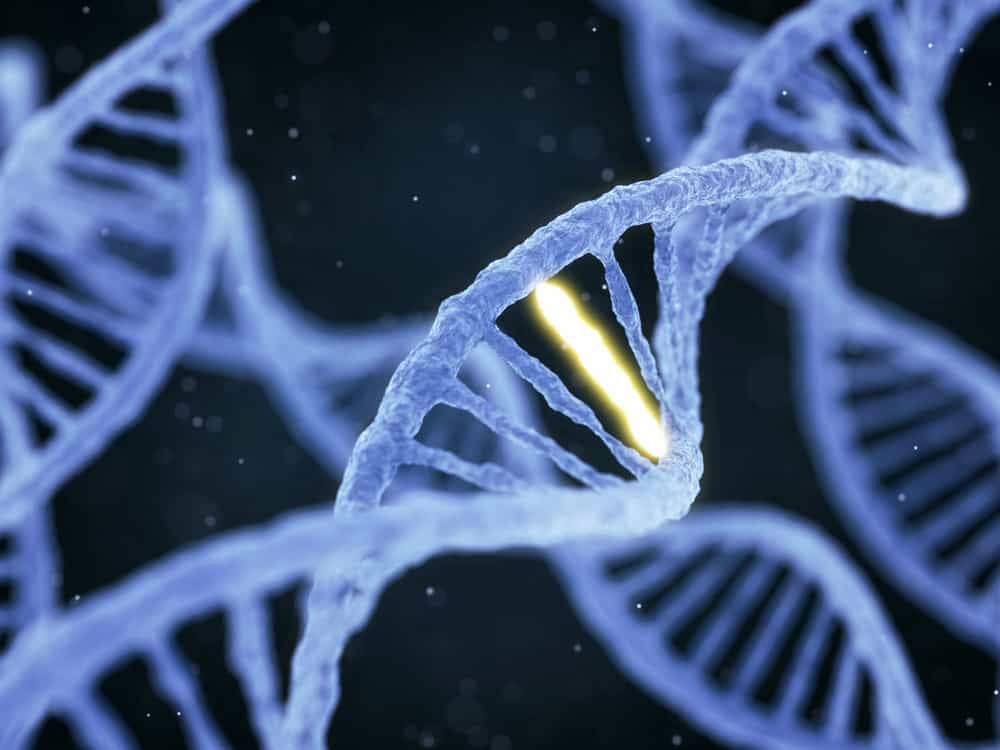Contents:
- Medical Video: NUTRIGENOMIX
- What is nutrigenomik?
- Relationship between food and genes in fat metabolism
- Relationship between food and genes in people with type 2 diabetes mellitus
Medical Video: NUTRIGENOMIX
There are people who often eat a lot but are not easily fat, there is also the opposite. Or there are people who often consume a food ingredient and then experience no side effects from eating these foods, but there are also those who just eat a little just immediately feel the side effects. Why did that happen?
Every human being is different, not only in nature and physical form, but also in genes and even metabolism that occur. Therefore, each person has a different sensitivity and digestive power. A new science is emerging, linking the diet or what we eat, and its relationship with genes and DNA that regulate bodily functions. The science is called nutrigenomik.
What is nutrigenomik?
Nutrigenomik is the study of gene responses to the food you eat, which aims to find out early what changes will occur after the food enters the body. Nutrigenomics is also associated with various diseases that can be caused by food.
In 2001, scientists who carried out the Human Genome Project stated that human genes had been successfully mapped, so that interactions between genes and food and the environment could be identified, and the interaction of genes associated with various chronic diseases. Nutrigenomik is considered as the nutritional needs of each individual based on the genes it has. There are 5 principles underlying this knowledge, namely
- Food substances affect human genes, even though the effects occur directly or indirectly.
- Under certain conditions, diet or food substances that are eaten are risk factors for the cause of an illness.
- Nutrients contained in food have a major influence on making the body healthy or sick, this depends on the genetic makeup of each individual.
- Some genes in the body, whose number and structure are regulated and influenced by diet, can affect the severity of a chronic disease.
- Consumption of food based on the needs of each individual, it turns out can be used to prevent, overcome, and cure various chronic diseases.
Everyone has different genes, at least one of them has a gene difference of 0.1%. In nutrigenomics, food that enters the body is considered a signal that can affect the activity of genes in the body. In addition, food is also known to change gene structure so that it can cause various disorders in the body if the gene changes.
Relationship between food and genes in fat metabolism
A study has proven that there is a relationship and interaction between nutrients and genes when doing fat metabolism. The results of this study indicate that individuals who have certain genes (APOA1 * A allele genes) have higher levels of bad cholesterol (LDL) compared to individuals who have other genes (APOA1 * G allele genes) after consuming foods high in monounsaturated fats, like avocado, canola oil, olive oil, and some nuts.
Initially, LDL levels in people who had the APOA1 * A allele gene were only 12% then after consuming these food sources, their LDL levels increased to 22%. Increased LDL levels in the body can cause various chronic diseases such as type 2 diabetes mellitus, coronary heart disease and other heart diseases.Other studies also prove that by eating foods that contain polyunsaturated fats, such as fish oil, soybeans, and coconut oil, individuals with certain genes can reduce the level of good cholesterol (HDL) in the body, while in other individuals actually increase HDL levels .
Relationship between food and genes in people with type 2 diabetes mellitus
Many studies have mentioned the relationship between food and genes in diabetics, such as research conducted in the Netherlands. In the study it was found that children born with 'starvation' conditions characterized by low birth weight, tended to have higher post pandrial blood sugar levels. Other research in India also shows the same thing, that is, babies with a body mass index below normal in the first two years of life will have a high risk of developing diabetes. Therefore, it can be concluded that the condition of malnutrition in pregnancy and in the early days of life causes a bad influence on carbohydrate metabolism and blood sugar, which will result in type 2 diabetes mellitus.
Nutrigenomik is actually still a controversy in the medical field, because it involves the genes of each individual. This can be a new breakthrough that can help and overcome various chronic diseases such as heart disease, cancer, and diabetes mellitus. But on the other hand, nutrigenomics still has to be investigated further whether it can be applied properly, because each individual is different then his needs are different. Even so, for now implementing a healthy lifestyle such as managing time, type, and portion of food, doing regular exercise, and adequate rest are the best suggestions and can be done by everyone.
READ ALSO
- 5 Types of Foods Cause Distended Stomach
- Tips for Living a Clean Eating Diet
- 5 Foods Causes Bloating Stomach












